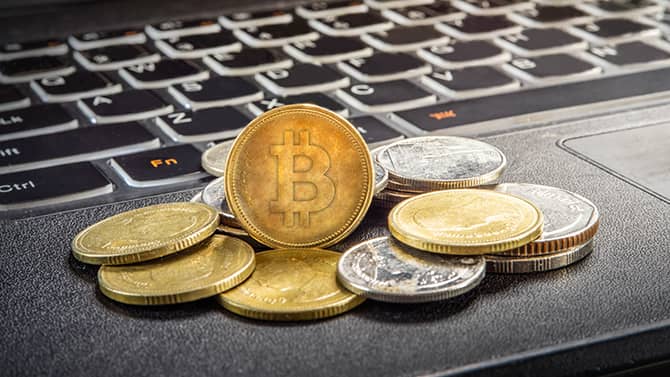The surge in cryptocurrency prices excites covetousness, and using the MT5 download feature at Exness is the right way! Bitcoin, ethereum… Here are some practical tips for storing your crypto-assets safely and protecting them from hacks.
Lured by the ever-higher highs of bitcoin, you may have considered investing in cryptocurrencies. But before you start, know that you must first study the issue of storage and security.
It is generally not recommended to leave your coins lying around in an online marketplace account, especially if there are a lot of them. Every year, marketplaces are hacked.
However, keeping your cryptocurrencies only on a digital platform presents risks:
- Having your account on the trading platform hacked and your bitcoin wallet stolen.
- The cryptocurrency exchange platform may be the victim of a cyber attack.
- Your computer is the victim of a computer attack if your PC is compromised.
Use a Physical Wallet for Your Cryptocurrency
While exchanges may seem more convenient for managing crypto-assets, they have a mixed reputation. The short history of crypto is not stingy with cybercasses.
In short, it is better to ensure the storage and security of your digital jackpot yourself. Which in fact amounts to protecting two pieces of information: the private key and the seed of its “wallet”.
Indeed, when you create a crypto wallet, you generate a public key that allows you to receive virtual money, and a private key that is used to sign transactions to send it.
At the same time, the seed is created, a series of 12 or 24 English words which make it possible to regenerate the private key in the event of loss. In other words, it’s a valuable safety net.
Metal Secret Codes
So how do you properly protect your wallet? The seed is only used in an emergency, so if possible never. It should not be stored on digital media, due to the risk of hacking or erasure. It must be recorded on a physical medium.
Of course, you can write it down on a sheet of paper. But it is even better to use metal, which is resistant to fire, flooding and corrosion. For example, metal drop caps can be wedged between two plates, as proposed by Crypto Steel.
The Royal Road: The Hardware Wallet
Regarding the private key, the goal is that it never hangs around in a computer environment connected to the Internet, because it is the door open to hacking.
Creating a complete wallet (with a private key) on the computer we use every day is therefore a very bad idea, unless it is only used for small sums.
The royal way to manage this private key is to use a hardware wallet, such as those provided by Ledger or Trezor from around sixty euros.
The Cheapest One: The Paper Wallet
But if you want to have a wallet that only serves for storage, you can also succumb to greed and create a paper wallet that will cost you nothing.
A JavaScript code running locally will then generate a public key and a private key that you can print out as QR codes. It is advisable to perform this operation in a trustworthy computer environment, for example by starting your PC on a Tails Linux CD.
There is no seed in this scenario. It is directly the private key that you store in a safe until the day you want to transfer your “coins”.
Enabling Two-factor Authentication on Trading Platforms
When you open an account on an online exchange, you have the option of enabling two-factor authentication.
This allows for double security in case your digital currencies are stolen.
The principle is simple since when you connect to your bitcoin wallet, the trading platform will first ask you for your username and password.
To ensure that your personal data has not been stolen and that you are indeed the owner of the account, you will then be asked for double authentication.
This takes the form of a series of numbers sent to your mobile phone to be entered on the site.
Authenticating twice on a cryptocurrency exchange on the net is one of the solutions to secure your virtual currencies.
A Desktop Wallet to Save Your Cryptocurrencies
The desktop wallet is computer software that you install on your computer that stores and safeguards your digital currencies.
Thus, your bitcoin wallet (bitcoin wallet) is stored on the hard drive of your computer PC.
However, be careful and use strong passwords that include multiple letters, multiple numbers, uppercase, lowercase, and special characters.
Also protect your computer with a powerful anti-virus and make regular backups.
Finally, if you lose your hard drive, you lose all your cryptocurrencies as well.
Extra Tips to Avoid Cryptocurrency Theft
One of the risks of managing your digital investments in a custodial account — or hot wallet — is the potential for hacking. If the platform goes down and users are no longer able to transact cryptocurrency or log in to withdraw their funds, this could be a major risk.
On the other hand, the risk of using a self-custodian account — or a cold wallet — is securing your password.
Usually, investors put this written password in a safe. As there is more innovation in the crypto space and storage technology evolves, experts say there will be solutions for simpler self-custody storage.
Conclusion
In short, as we can see, becoming a crypto-investor cannot be improvised. Mistakes can be many if you are not careful.
To avoid becoming the victim of hackers, you have to delve into the subject, understand the underlying cryptographic mechanisms and think carefully about a security strategy.
Have good luck with the Exness when it comes to trading crypto!






